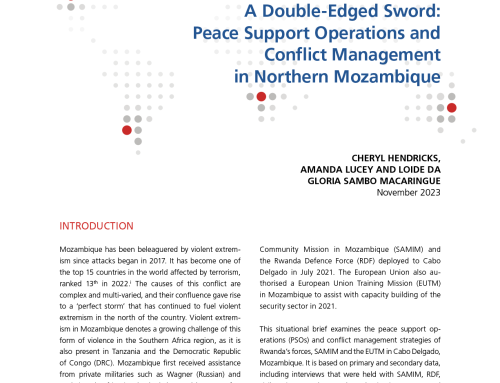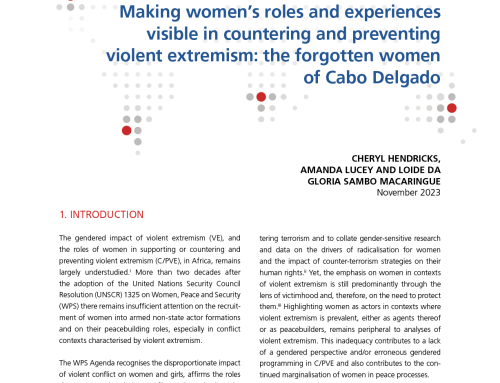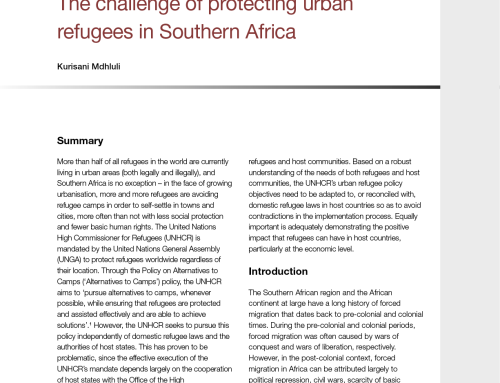
IJR Policy Brief 28: The African Union Transitional Justice Policy
The adoption of the African Union Transitional Justice Policy (AUTJP) in February 2019 was a momentous step on the part of the African Union (AU) in delivering on its mandate to end violent conflicts on the continent and ensure sustainable peace. The policy is a decisive move by the AU to use context-specific transitional justice (TJ) mechanisms to address nation-building and reconciliation in the aftermath of violence and mass atrocities on the continent. However, for the policy to gain an enduring foothold in Africa, it needs to become the guiding normative framework as the sixth legal pillar of the African Peace and Security Architecture (APSA). This TJ pillar will thus work in conjunction with other vital AU organs at all levels. As part of this work, context-specific TJ processes will be disseminated to the various Regional Economic Communities (RECs) and Regional Mechanisms (RMs) which will, in turn, inform and support country-specific proceedings. This encourages a feedback loop into the rest of the APSA pillars, such as knowledge-gathering by the Continental Early Warning System (CEWS), mediation by the Panel of the Wise (PoW), and decision-making by the Peace and Security Council (PSC) in terms of its overall mandate in this regard.
Given the increasing cyclical nature of conflict on the African continent, the AU adopted the AUTJP The AUTJP is designed to fill a gap identified by the AU Peace and Security Council’s PoW in its 2011 report originally entitled, ‘Non-Impunity, Truth, Peace, Justice, and Reconciliation in Africa: Opportunities and Constraints’.2 The findings of the report highlighted fundamental issues regarding how member states dealt with, and shared experiences of, transitional justice. This laid the foundation for the development of a TJ policy for AU member states, a process largely spearheaded by civil society, notably the South Africa-based Centre for the Study of Violence and Reconciliation (CSVR). This was mostly a collective effort directed towards combating impunity by ensuring that AU peacebuilding efforts addressed matters of justice, reconciliation and healing in the aftermath of violent conflict and systematic and gross human rights abuses.
The role of the AU on the continent cannot be overstated given the predominance of various conflicts across the region. To combat this phenomenon, APSA was assigned the mandate of ensuring the prevention, management and resolution of election-related conflicts and political violence. This organ consists of several pillars that cooperate in addressing issues such as civil unrest, genocide and ethnic cleansing, as well as political violence and related electoral violence.
By: Refilwe Makgopela
Pages: 8
Dimensions: A4
Date of publication: 2020




